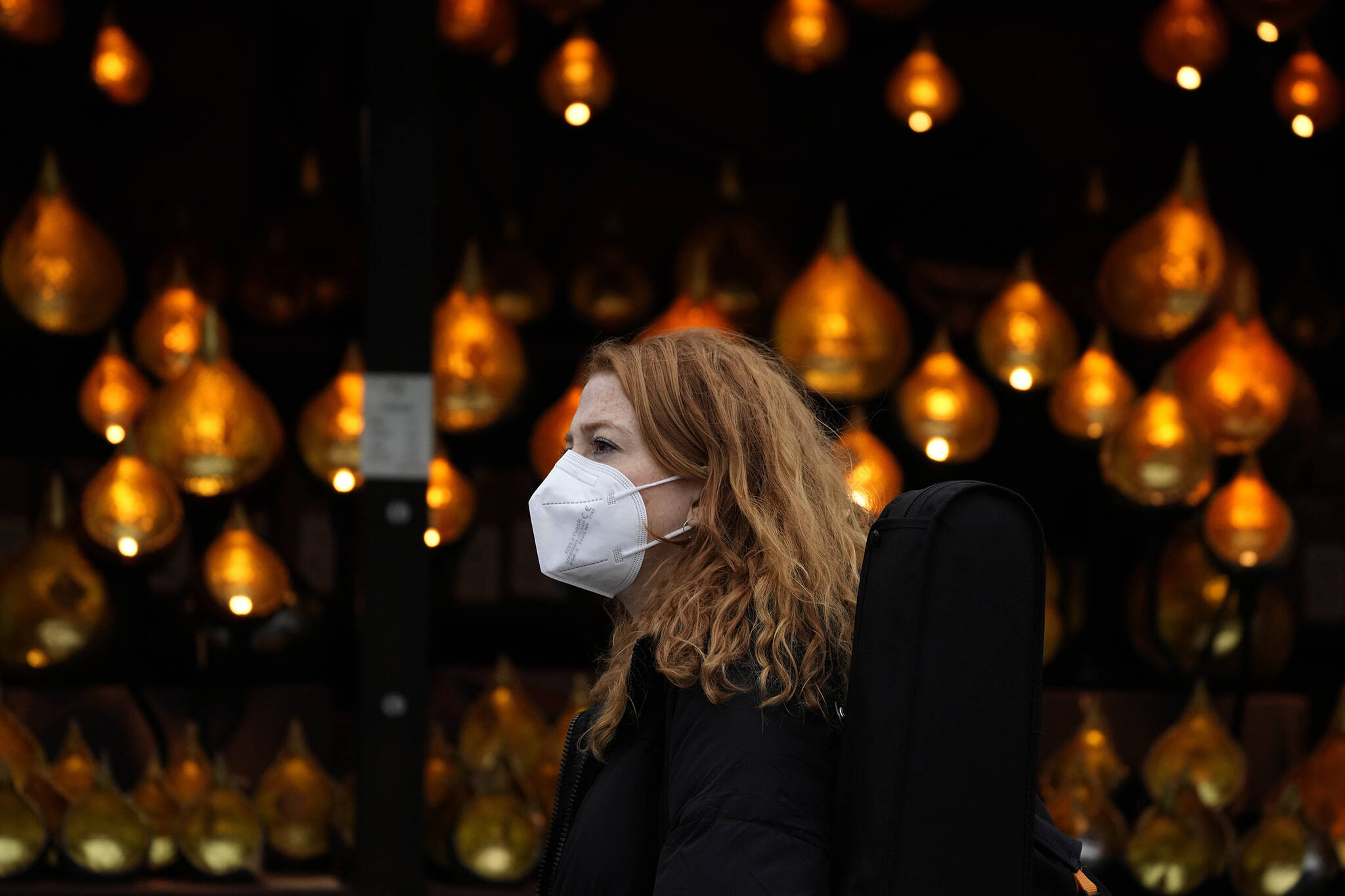State public health officials reported the discovery of a second case of the omicron variant of COVID-19 in Alaska. The report was issued late Wednesday afternoon as part of standard reporting procedures.
In a news release, the Alaska Department of Health and Social Services said that the case was detected in a sample from an Anchorage resident who had traveled out of state earlier this month.
According to the department, the infected person was experiencing mild symptoms and was already isolating at home when reached by contract tracers.
On Tuesday, Dr. Joe McLaughlin, state epidemiologist and chief of the Alaska Section of Epidemiology at DHSS, told the Empire that while at that time only one case had been detected, he expected more cases soon.
[City inches toward relaxing some COVID mitigations]
McLaughlin said genomic sequencing usually takes about two weeks and based on reports from other areas of the country and across the globe, it was only a matter of time before state public health labs uncovered more omicron cases in Alaska.
“We totally expect a surge here, ” McLaughlin said Tuesday. “We just don’t know when it will be.”
McLaughlin urged Alaskans to use proactive protective measures to avoid all strains of COVID-19 and pointed to primary vaccination and booster shots as vital preventive strategies.
He suggested “layered protection,” including non-pharmaceutical interventions such as masking, social distancing, and testing as a complement to vaccination.
“I encourage Alaskans to get tested before going to a Christmas or New Year’s Eve party,” McLaughlin said.
In addition, state public health officials announced 30 deaths of Alaska residents, one nonresident death and 235 new people identified with COVID-19 in Alaska, including 9 in Juneau.
According to state data, four of the deaths were recent. The rest were identified through death certificate review from September to December, a process that is ongoing.
Possible good news
This news comes as scientists shared studies suggesting omicron is less likely to result in hospitalization.
Two new British studies provide some early hints that the omicron variant of the coronavirus may be milder than the delta version.
Scientists stress that even if the findings of these early studies hold up, any reductions in severity need to be weighed against the fact omicron spreads much faster than delta and is more able to evade vaccines. Sheer numbers of infections could still overwhelm hospitals.
Still, the new studies released Wednesday seem to bolster earlier research that suggests omicron may not be as harmful as the delta variant, said Manuel Ascano Jr., a Vanderbilt University biochemist who studies viruses.
“Cautious optimism is perhaps the best way to look at this,” he said.
[50 years after ANCSA, some still fighting for land]
An analysis from the Imperial College London COVID-19 response team estimated hospitalization risks for omicron cases in England, finding people infected with the variant are around 20% less likely to go to the hospital at all than those infected with the delta variant, and 40% less likely to be hospitalized for a night or more.
That analysis included all cases of COVID-19 confirmed by PCR tests in England in the first half of December in which the variant could be identified: 56,000 cases of omicron and 269,000 cases of delta.
A separate study out of Scotland, by scientists at the University of Edinburgh and other experts, suggested the risk of hospitalization was two-thirds less with omicron than delta. But that study pointed out that the nearly 24,000 omicron cases in Scotland were predominantly among younger adults ages 20-39. Younger people are much less likely to develop severe cases of COVID-19.
“This national investigation is one of the first to show that Omicron is less likely to result in COVID-19 hospitalization than Delta,” researchers wrote. While the findings are early observations, “they are encouraging,” the authors wrote.
The findings have not yet been reviewed by other experts, the gold standard in scientific research.
Ascano noted the studies have limitations. For example, the findings are specific to a certain point in time during a quickly changing situation in the United Kingdom and other countries may not fare the same way.
Matthew Binnicker, director of clinical virology at Mayo Clinic in Rochester, Minnesota, said that in the Scottish study, the percentage of younger people was almost twice as high for the omicron group compared with the delta group, and that “could have biased the conclusions to less severe outcomes caused by omicron.”
He nonetheless said the data were interesting and suggest omicron might lead to less severe disease. But he added: “It’s important to emphasize that if omicron has a much higher transmission rate compared to delta, the absolute number of people requiring hospitalization might still increase, despite less severe disease in most cases.”
Data out of South Africa, where the variant was first detected, have also suggested omicron might be milder there. Salim Abdool Karim, a clinical infectious disease epidemiologist in South Africa, said earlier this week that the rate of admissions to hospitals was far lower for omicron than it was for delta.
“Our overall admission rate is in the region of around 2% to 4% compared to previously, where it was closer to 20%,” he said. “So even though we’re seeing a lot of cases, very few are being admitted.”
• Contact reporter Dana Zigmund@dana.zigmund@juneauempire.com or 907-308-4891.

